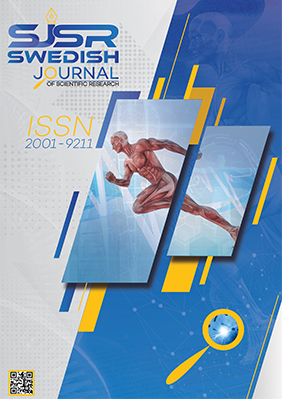Comparison of Male and Female Differences in Emotional Intelligence Among Trained Univerisities Athletes
of Lusaka Province, Zambia
Mathivanan D & Clement chileshe
St.Eugene University, Zambia
Director, Olympic youth Development centre, Assistant Professor
E-mail: gokulvarshan2004@gmail.com
Abstract
(Palmer and Stough 2001) defined as Emotional intelligence as “the capacity to deal effectively with one’s own and others emotions ’Previous empirical studies in this area have indicated that the construct of emotional intelligence provides an athlete with an understanding of their specific emotional competencies, and therefore a better understanding and awareness of how to use emotions in sport. The comparison of the study is to attempt and examine the differences between female and male athletes of Lusaka Province with respect to their emotional intelligence in the selected variables such as Self-awareness, Self-regulation, Motivation, Empathy, Social skills.
It was assumed that female athletes would have high emotional intelligence as compared to the male athletes. “Emotional Intelligence Test” developed by Dr. N. K. Chadha (1998) was applied on all of the participants of the study (i.e. 30 female and 40 male athletes).Were selected random for this study Statistical analysis by computation of “t-test” revealed a significant difference in the emotional intelligence of female and male athletes of Lusaka Province. The results confirmed the hypothesis differences in relation to emotional intelligence, findings of the current study indicate that females are more emotionally intelligent than male athletes. The higher level of emotional intelligence of female than male in Lusaka Province are explained in terms of traditional trends, pattern of society and social roles assigned to male and female with respect to African culture in Zambia.
Keywords: Emotional; Intelligence; Athletes; Male; Female.
Introduction
Until recently, the role of emotional intelligence in performance had primarily been studied within the corporate environment or the workplace. Such research has indicated that individuals with better emotional intelligence typically perform with greater success than individuals who have less effective ways of dealing with emotions. As most people would agree, the “workplace’ of the elite athlete is both the competitive and training environment, yet it is during competition that an athlete’s performance is ultimately evaluated.
REVIEWS OF RELATED LITERATURE
Zamanian et al. (2011) comparison of emotional intelligence in elite athletes in several sports and non-athletes. For that matter, 160 women including 90 handball, futsal, and basketball players participating in 2009-2010 premier league (30 women in each group) and 70 non-athletes filled out the BarOn Emotional Quotient Inventory (EQ-i). This questionnaire consists of 15 subscales for an overall assessment of emotional intelligence. The results of statistical analysis showed that the subscales of problem solving, happiness, independence, stress tolerance, self-actualization, emotional self-awareness, interpersonal relationship, optimism, self-regard, impulse control, and empathy were significantly higher in athletes than non-athletes.
Conclusion
The highest level of emotional intelligence among the universities athletes in the Lusaka province of Zambia The “average’ level of emotional competency indicates that these students lack emotional competency essential for performing in the sports competition which includes their career personally successful and socially meaningful.
It also includes the training of emotional intelligence in the curriculum and also in coaching the athletes that can help the athletes to gain emotional competency.
Recommendations
Further research can be done in the same topic with different samples and different game situations. It could be useful to the coaches and athletic trainers of both gender in identifying the areas in which more efforts needed in developing the athletes.
References:
Antonakis, John; Ashkanasy, Neal M. and Dasborough, Marie, T. (2009).
Does leadership need emotional intelligence. ELSEVIER Journal Quarterly. 20, 247-261..


